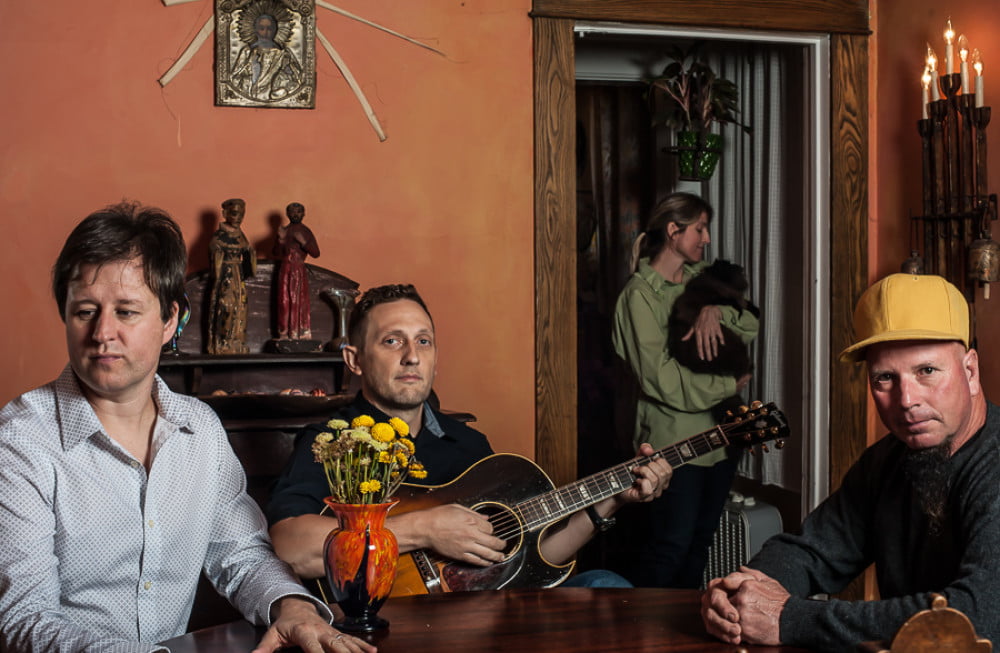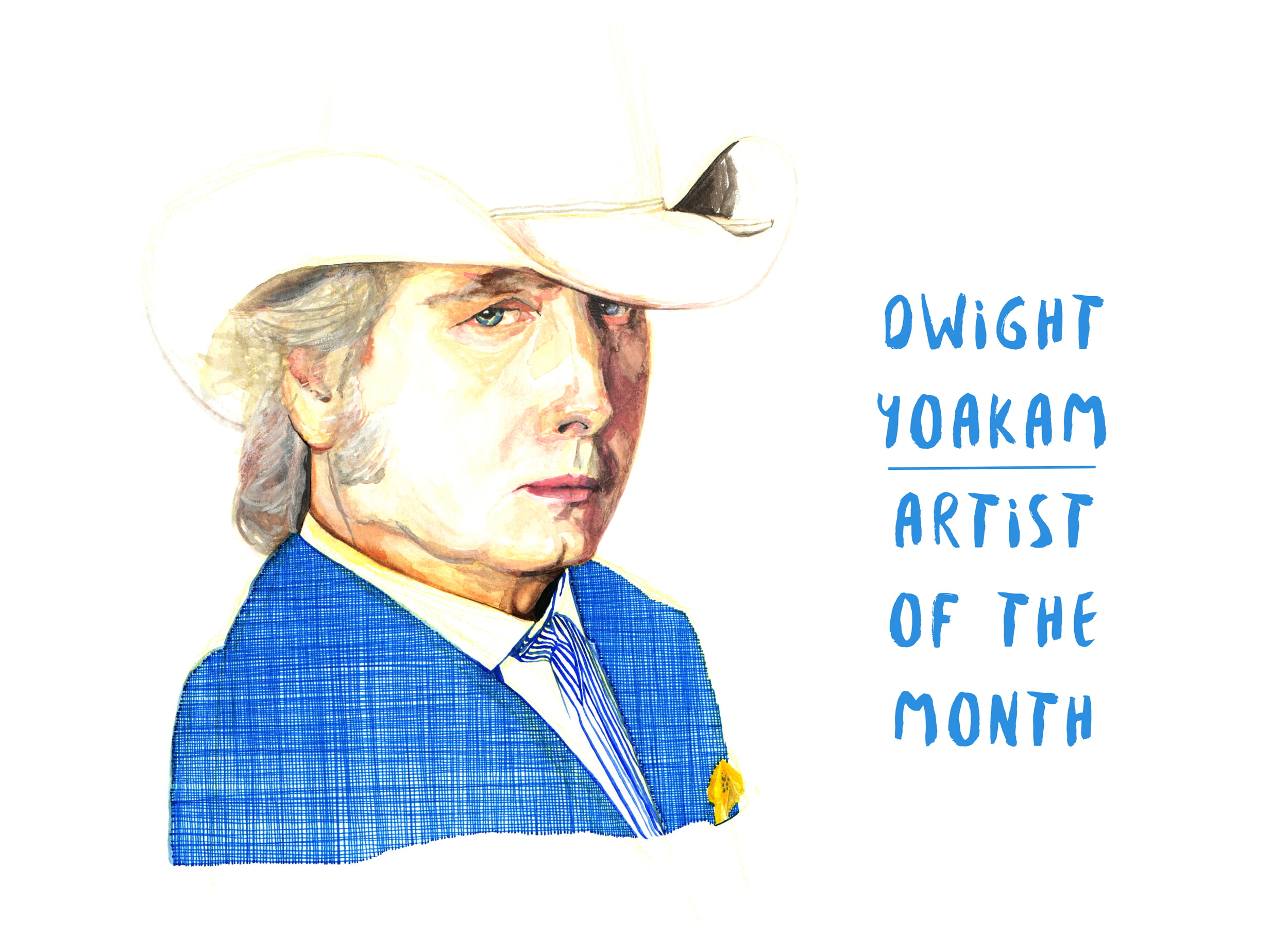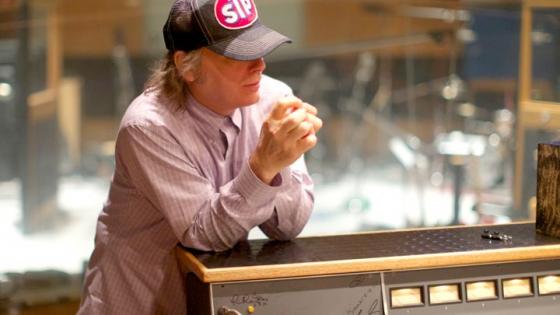Through the years, the Coal Men have traveled a lot of miles in mini-vans and rentals. We always like to catch up on tour drives and listen to music that's catching our ears. In my younger, long-hair, Fentress County, Tennessee, days, I had my silver-face SONY dual tape deck. I even DJ'd a few dances with it. Mostly, I loved making mixtapes of older songs and doodling on the Maxwell tape box blank cards. Here are some of my favorite cuts that have found their way from those old tapes into the long shows we do when we step outside of our own song catalog. — Dave Coleman
"Long Black Veil" — (Danny Dill/Marijohn Wilkin)
Johnny Cash's version was the one I heard the most growing up, but the Band's version blows me away these days. Lefty Frizzell had the first first hit with it back in 1959. It's a heartbreaking tune written from the vantage point of a corpse.
"Rain" — (John Lennon/Paul McCartney)
The Beatles' version is a masterpiece, but I learned the song from Singing Sergeant Washington, a local Tennessee band that I loved. I desperately wanted to be in that band as a 17-year-old. I finally got the chance to play guitar with them on my first gig in Nashville (at Obie's Pizza). The band, sadly, broke up. Heartbroken, I forged on and started my own group. I like to throw my best Hendrix-inspired psychedelic roots rock on the song these days. Fuzz and Sun.
"Are You Experienced?" — (Jimi Hendrix)
My favorite mixtape I had was titled FOUR: it started with that many Jimi Hendrix instrumental songs I tracked down. It was stuff where he used extreme amounts of surf-sounding wah-wah pedal (i.e. "Hornet's Nest"). I later buzzed some of my other favorite songs onto it. The backwards guitar and drums in the song — along with the pounding quarter-note piano — are monumental. We now do a fun stripped-down roots rock version.
*Here are the Coal Men (with Pete Finney on pedal steel) from a few years ago down in Florida. Note the number four on my guitar — it came from the FOUR mixtape.
"Rock N Roll Girl" — (Paul Collins)
The Beat, a short-lived L.A. band, recorded this simple-but-perfect taste of power-pop delight. We do it fast, loud, and always for a gem of a bartender named George. The Paul Collins Beat did a record a few years ago that blew me away called Ribbon of Gold.
"Six Days on the Road" — (Dave Dudley)
It's been covered by tons of folks. What's the reason why? It might be the best truck-driving song ever. We just played a show with Mathew Ryan and I had to dedicate this one to him because he'd just "pulled out of Pittsburgh" to come down to Nashville to record his next record.
"Guitars, Cadillacs" – (Dwight Yoakam)
My life changed when I heard Dwight's original guitar player/producer Pete Anderson. Duane Jarvis told me a story about playing guitar with Dwight Yoakam on a Canadian tour. (Pete was producing the Meat Puppets at the time.) He went for the solo, and people were going crazy, and he thought he was on fire with the guitar. He turned around as Dwight was doing one of his killer dance moves. Sometimes it's not the notes you play, but how you shake them that counts, I guess. Jokes aside, this is a sad song about a land of "lost and wasted dreams" with a shuffle that won't stop.
"Everybody's Talkin'" — (Fred Neil)
I love Western movies and, when I was a kid, I rented Midnight Cowboy from Jamestown Video for a dollar. It is not, in fact, a Western. I still loved it, though. The version recorded by Harry Nilsson haunts the movie throughout in joyful, saddening beauty.
"Silver Wings" — (Merle Haggard)
In my opinion, this is the definition of a perfect song. One chorus and one verse. I cried when Merle died. We love to play this song for the travelers and the lonely ones they leave behind.
"Drive Back to You" — (Duane Jarvis)
I met Duane shortly after I moved to Nashville. He was my rock 'n' roll professor. He had this gritty and tasteful guitar playing with Brit-rock influenced songs. I toured a lot with him and we wrote dozens of songs together. This one was about his wife Denise. Duane passed away in 2009, but his music is still with me and lifts me up. I love to sing this song with the joy he brought to it.
"Jesus on the Mainline" — (Traditional arranged by Ry Cooder)
This song explains that beautiful relationship a Protestant has with the maker. You can talk to that friend any time you want — no busy signal, no answering machine. I'm a fan of traditional songs with a simple form. It allows the players to open up with confidence of the rock solid foundation underneath. That's something we could all use in our everyday lives. Ry Cooder's version has all of this hypnotic melodic playing that is as transcendental as it gets.





